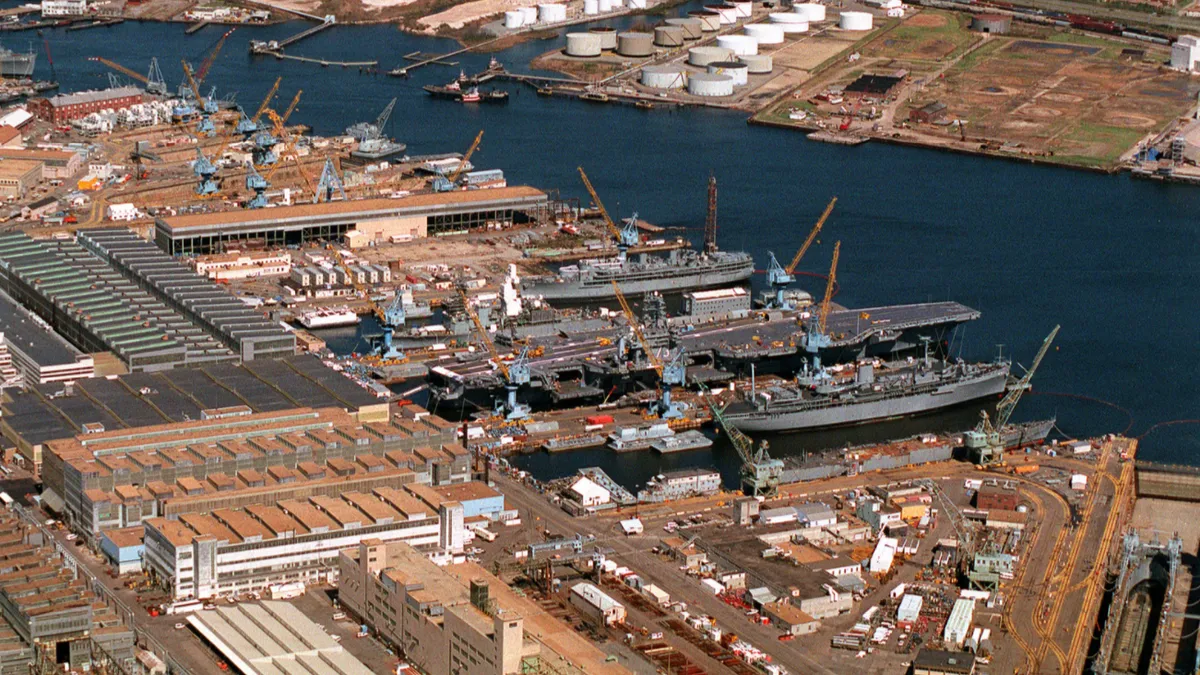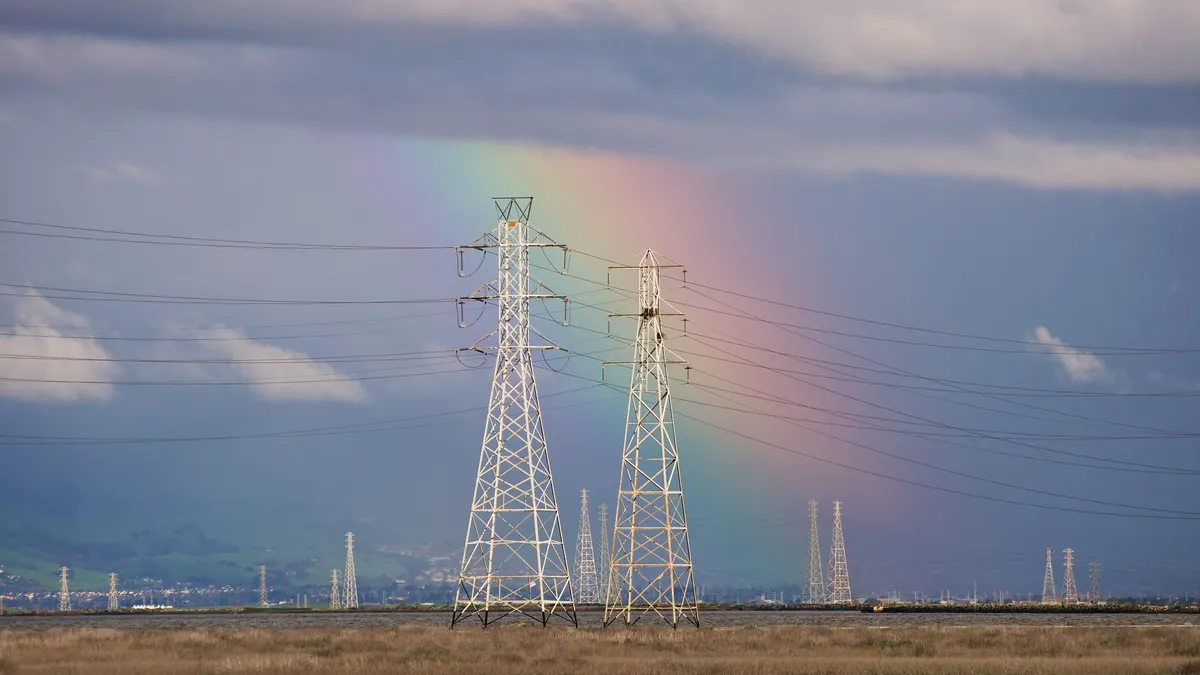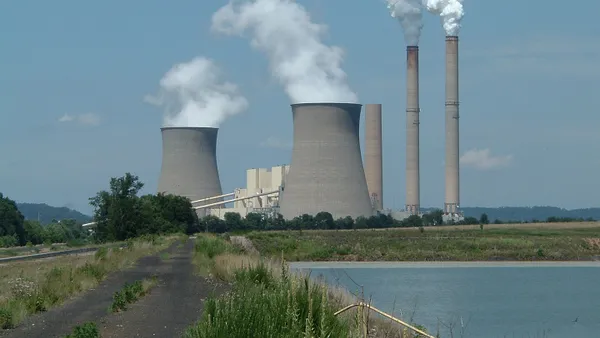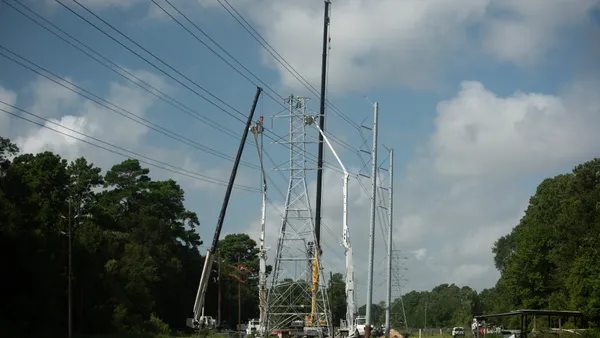Dive Brief:
-
The Virginia Air Pollution Control Board has approved a permit for the construction of a new 17 MW natural gas power plant to service the Norfolk Naval Shipyard in Portsmouth, Virginia, despite criticism from environmental groups who say the surrounding community already suffers disproportionate health effects from air pollution.
-
Portsmouth residents, who are predominately Black, live within 15 miles of nine Superfund sites, and 18% live in poverty, according to the Chesapeake Bay Foundation. Residents have reported cancers, hormonal issues and infertility, according to comments by the Foundation.
-
The new natural gas plant will produce fewer emissions than the shipyard's current sources of electricity, which includes burning the city's waste for steam, according to Norfolk Naval Shipyard public affairs. The shipyard had ruled out a solar PV alternative due to limited space.
Dive Insight:
The approval of a new natural gas power plant in Virginia shows the state "still has a long road ahead to fully implement environmental justice in major decisions," according to Chesapeake Bay Foundation Virginia executive director Peggy Sanner. But Naval officials say the gas plant is necessary to ensure a reliable supply of steam and electricity for critical operations at the Norfolk Naval Shipyard.
"In light of the increased pollution and potential health risks this plant poses to people living nearby, it is disappointing that the Board did not require monitoring and reporting of the plant's actual emissions," Sanner said in a statement that also acknowledged "that members of the Board thoughtfully grappled with environmental justices questions."
The proposed plant will produce fewer pollutants than the existing sources from which the shipyard currently produced steam, according to Irina Calos, spokesperson for the Air & Renewable Energy Division of the Virginia Department of Environmental Quality. The DEQ had determined the plant would not cause ambient air quality pollution levels to exceed federal air quality standards, Calos said.
Norfolk Naval Shipyard opted to construct a natural gas plant after a lengthy search for a cleaner, more reliable source of energy than the shipyard's current sources, which rely on trash and oil for fuel, according to a statement from Norfolk Naval Shipyard public affairs. The shipyard requires a year-round, 24/7 source of steam to fulfill critical missions, according to the statement, and found existing reasonable energy options could not address this need. The shipyard had considered installing some 10 MW of solar PV to supplement its power supplies, but "determined that there was not enough available real estate, roofs or parking lots on or near [Norfolk Naval Shipyard] to support a solar PV project," the statement says.
However, the shipyard plans to install pollution controls beyond what would be required for a plant of its size, and will couple these controls with energy efficiency measures to "fulfill its mission with the lowest impact on the environment," according to the statement.













